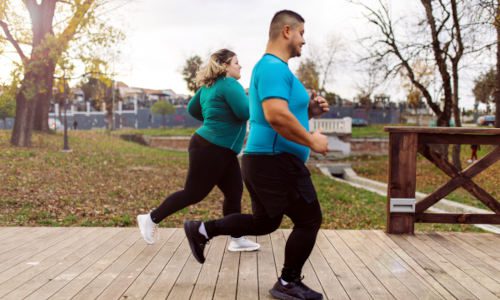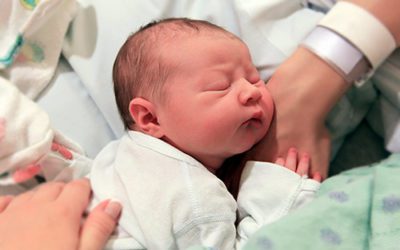
As a part of the home study process, you’ll need to obtain medical statements from your doctor that verify your mental and physical well-being.
Mental Well-Being of Adoptive Parents
Occasionally, a home study provider will recommend that the adoptive couple speak with a counselor or therapist. Many times, hopeful adoptive parents need to fully process any unresolved grief associated with infertility and loss before they can fully commit themselves to adoption.
Seeking help from a licensed counselor can be an invaluable tool in learning ways of coping, reacting, or addressing some of the challenges and feelings. An example of a scenario for which adoptive families have sought counseling includes discovering a sense of loss for the unfulfilled dream of being pregnant. Others find that marital struggles arise, seemingly out of nowhere, or are magnified by the adoption process.
Before you commit to adopting, make sure you have come to terms with any issues that may have led you to adoption. For example, many hopeful adoptive families have struggled with infertility, leading to feelings of disappointment and frustration. Make peace with yourself and your situation before considering adoption. You will need to be strong and come from a place of great hope for your adoption adventure, understanding that adoption is a separate journey.
Many aren’t aware of this, but our mental state and physical well-being are intimately connected. So while filling up on comfort food and binging Netflix may feel right, forming healthy habits like regular exercise and a healthy diet can go a long way toward improving your mental health. Studies have found that regular exercise works as well as medication for reducing anxiety.
Physical activity, like exercise, produces endorphins, improves our ability to sleep, and reduces stress. Scientists have found that regular exercise elevates and stabilizes mood, decreases tension, improves sleep, and improves self-esteem. And you only need about five minutes of aerobic exercise to begin to produce anti-anxiety effects.
If regular exercise isn’t something you’re used to, getting started is usually the most difficult part. You might try something simple, like fitting in a 20-minute walk in the morning.
Developing healthy habits can also have benefits for your future baby, too, since parents set the pattern for a family’s lifestyle. “Kids learn what they see and parents, whether they like it or not, are role models for our kids,” says Keith Ayoob, an Associate Professor Emeritus of pediatrics at Albert Einstein College of Medicine. Ayoob reasons that a child’s environment plays a vital role in reducing their risk of obesity.
Physical Well-Being of Adoptive Parents
A prospective adoptive parent’s weight may be a factor that is considered when determining their medical suitability. However, weight is not the only factor. Simply being overweight won’t necessarily stop you from adopting a child.
A spokesman for the National Council for Adoption, Lee Allen, shares, “Obesity only becomes an issue for a potential parent when it could jeopardize the stability of the child’s home. There are criteria for adoptive parents and that does include health criteria.”
He continues, “The goal for adoption, of course, is to provide permanency for a child who doesn’t have that. But when someone has a health risk that could produce a risk to permanency, then it has to be looked at.”
Most adoptions don’t depend on just one factor, such as the adoptive parent’s weight. However, weight may be taken into account if obesity is considered a risk to any child that enters the home. “If someone is obese and therefore has diabetes and has had two heart attacks, well that’s a big risk for that kid,” says Adam Pertman, executive director of The National Center on Adoption and Permanency and author of Adoption Nation. “If the circumstance in the given case is that this kid isn’t going to get a long-term loving home, then you have to make a tough judgment.”
Some will argue that it shouldn’t matter how much a parent weighs so long as they are willing to provide a loving home for a child in need. However, medical experts share that obesity and its associated health risks should be something that agencies consider when vetting prospective parents.
What Are Birth Mothers Looking for in Adoptive Parents?
In domestic infant adoption, the birth mother chooses the adoptive parents for her child. Most birth mothers are looking for a variety of attributes. As a result, many hopeful adoptive parents wonder what qualities birth mothers look for in parents for their baby.
Honesty, a genuine connection, and a secure feeling that she is placing her child in a loving home are pretty universal wishes among expectant parents. Beyond that, many birth mothers share that they are seeking a healthy family with an active lifestyle, who can keep up with their child.
In fact, we have even heard from one birth mother who ended up passing on an adoptive couple because she was concerned about the hopeful adoptive mother’s weight. She confessed to her Adoption Coordinator, “I hate to say it, but I’m concerned about Tammy’s weight. I want the baby to be in a healthy home.”
Being fit and healthy is important when adopting a child as parenting can be very demanding; you need lots of energy, so being in good physical health is important. Adoptive couples who do well in adoption try to be the best version of themselves. They can do this by taking breaks when needed, getting enough sleep, and being physically healthy and active.
What if We’re Overweight?
People can be healthy and fit and still appear overweight. They can also be on a fitness journey, and it’s not always easy to tell by physical appearance. Some adoptive moms have some extra weight due to PCOS or fertility meds. However, you can still show birth mothers you’re physically active on your website and in your adoption video.
Or, what some hopeful adoptive parents who are carrying a few extra pounds have done is focus on other features of their lives in their presentation materials. For example, one adoptive couple chose instead to highlight the wife’s famous chocolate chip cookies. Full-figured, with her short, strawberry blonde hair, Mona was outgoing and had a great smile. Dan was slender and handsome but, unlike his wife, was quiet and shy. They lived a simple and unhurried life centered on their home and family and they rarely went on vacations. Mona and Dan worried that their profile wouldn’t stack up to those they’d seen of other couples who had college degrees, lots of money, active lives, big houses and lawns, grandparents nearby, and Disneyland vacations planned.
We asked Dan if there was anything special about Mona. “There is one thing,” he said. “She’s famous for her chocolate chip cookies. They’re made from a secret recipe.” We encouraged them to share in their profile that her cookies were the “best around those parts.” One month later, Mona and Dan were chosen by a pregnant birth mother named Sarah, who told me that the cookies were the thing that had first appealed to her. She imagined her child coming home from school to chocolate chip cookies fresh from the oven, then climbing into Mona’s soft lap to cuddle!
It’s hard to get in shape when you’re a parent to a newborn, so many adoptive couples find that they prioritize getting healthy now before they adopt. There’s no need to try to overhaul everything at once. Instead, consider committing to gradual changes, like removing soda from your diet or fitting in a short walk every day. It can make a difference in your adoption efforts and help prepare you for your parenting journey ahead!
Founder of Lifetime Adoption, adoptive mom, adoption expert, and Certified Open Adoption Practitioner (C.O.A.P).
Since 1986, adoption expert Mardie Caldwell has been dedicated to bringing couples and birth parents together in order to fulfill their dreams.
“Many years ago, I was also searching for a child to adopt. We didn’t know where or how to get started. Through research, determination, and a prayer, our dream of a family became reality. I started with a plan, a notebook, assistance from a caring adoption consultant and a lot of hard work; this was my family I was building. We had a few heartaches along the way, but the pain of not having children was worse!
Within weeks we had three different birth mothers choose us. We were overwhelmed and delighted. Many unsettling events would take place before our adoption would be finalized, many months later. Little did I know that God was training and aligning me for the adoption work I now do today. It is my goal to share with our families the methods and plans which succeed and do not succeed. I believe adoption should be affordable and can be a wonderful “pregnancy” for the adoptive couple.
I have also been on both sides of infertility with the loss of seven pregnancies and then conceiving by new technology, giving birth to a healthy daughter. I have experienced first-hand the emotional pain of infertility and believe my experience allows me to serve your needs better.
It is my hope that for you, the prospective parents, your desire for a child will be fulfilled soon.”




0 Comments